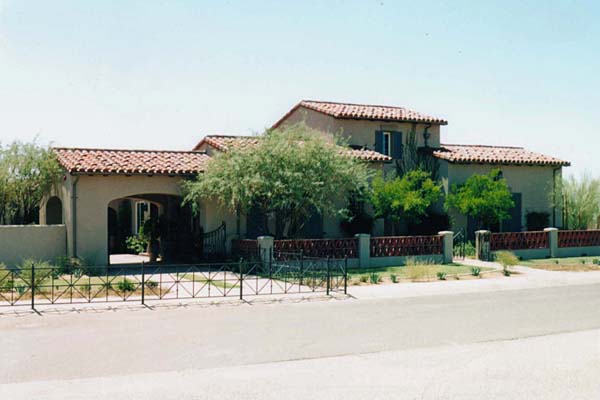ECONOMIC DEPRECIATION
Unveiling Economic Depreciation in Real Estate
In the realm of real estate, the concept of economic depreciation holds significant implications for property valuation and investment decisions. Economic depreciation refers to the loss of value from all causes outside the property itself. Understanding the nuances of economic depreciation is crucial for real estate professionals and investors, as it directly influences the financial performance and long-term outlook of real estate assets.
The Essence of Economic Depreciation
External Factors Impacting Value
Economic depreciation encompasses a broad spectrum of external factors that can diminish the value of a property. These factors may include changes in the surrounding neighborhood, shifts in economic conditions, alterations in zoning regulations, or the development of competing properties. Unlike physical depreciation, which pertains to the wear and tear of a property's structure and systems, economic depreciation stems from extraneous influences that can erode the property's worth over time.
Market Dynamics and Perception
The perception of a property within the context of its surrounding economic environment greatly influences its susceptibility to economic depreciation. Fluctuations in market demand, shifts in consumer preferences, or changes in the local employment landscape can all contribute to economic depreciation. Properties located in areas experiencing economic decline or undergoing significant transformations are particularly vulnerable to this form of devaluation, as their perceived desirability and marketability may diminish.
Long-Term Implications
Economic depreciation can have enduring repercussions on real estate investments. Properties subject to substantial economic depreciation may experience diminished rental incomes, reduced resale values, and prolonged marketability challenges. Additionally, the potential for future appreciation may be curtailed in the presence of persistent economic depreciation, impacting the overall return on investment and financial viability of real estate assets.
Navigating Economic Depreciation Dynamics in Real Estate
Navigating Economic Depreciation Dynamics in Real Estate
Thorough Due Diligence
Real estate professionals and investors must conduct comprehensive due diligence to assess the potential risk of economic depreciation associated with a property. This involves scrutinizing the economic indicators and trends within the property's vicinity, evaluating the competitive landscape, and gauging the long-term economic prospects of the area. Thorough due diligence enables stakeholders to anticipate and mitigate the impact of economic depreciation on their investments.
Adaptation and Mitigation Strategies
Acknowledging the presence of economic depreciation prompts real estate stakeholders to devise adaptation and mitigation strategies. Proactive measures may involve diversifying the property's potential uses, enhancing its appeal through strategic renovations or repositioning, or engaging in community development initiatives to bolster the economic vitality of the area. By actively addressing the underlying causes of economic depreciation, stakeholders can safeguard the value and performance of their real estate assets.
Market Resilience and Future Prospects
In light of economic depreciation factors, assessing the long-term resilience and future prospects of the market becomes imperative. Real estate professionals must evaluate the potential for economic revitalization, infrastructure improvements, or burgeoning economic sectors that could counteract the effects of economic depreciation. Identifying opportunities for future growth and rejuvenation can inform strategic investment decisions aimed at mitigating the impact of economic depreciation and maximizing the property's value over time.
Conclusion
Economic depreciation represents a multifaceted aspect of real estate valuation and investment, encompassing the external influences that can diminish a property's worth over time. By recognizing the implications of economic depreciation and proactively addressing its underlying causes, real estate professionals and investors can navigate market dynamics, safeguard the value of their assets, and capitalize on opportunities for long-term growth and resilience.
Understanding economic depreciation is essential for anyone involved in the real estate industry. By acknowledging its impact and devising informed strategies to mitigate its effects, real estate stakeholders can make prudent investment decisions that foster the sustained value and performance of their assets in the face of external economic influences.
MORE REAL ESTATE TERMS
A, B, C, D, E, F, G, H, I, J, K, L, M, N, O, P, Q, R, S, T, U, V, W, X, Y, Z
Featured New Home

Featured Mortgage Brokers
- VENTA FINANCIAL GROUP INC, LAS VEGAS, NV
1300 S JONES BLVD STE 150
LAS VEGAS, NV 89146 - AMERIPRO FUNDING INC, SAN ANTONIO, TX
401 E SONTERRA BLVD STE 375
SAN ANTONIO, TX 78258 - EVOLVE BANK & TRUST, TULSA, OK
5110 S YALE AVE STE 500
TULSA, OK 74135 - FIRST PREFERENCE MTG CORP, BOWIE, MD
1525 POINTER RIDGE PL
BOWIE, MD 20716 - CATALYST LENDING INC, GREENWOOD VILLAGE, CO
6530 S YOSEMITE ST STE 310
GREENWOOD VILLAGE, CO 80111